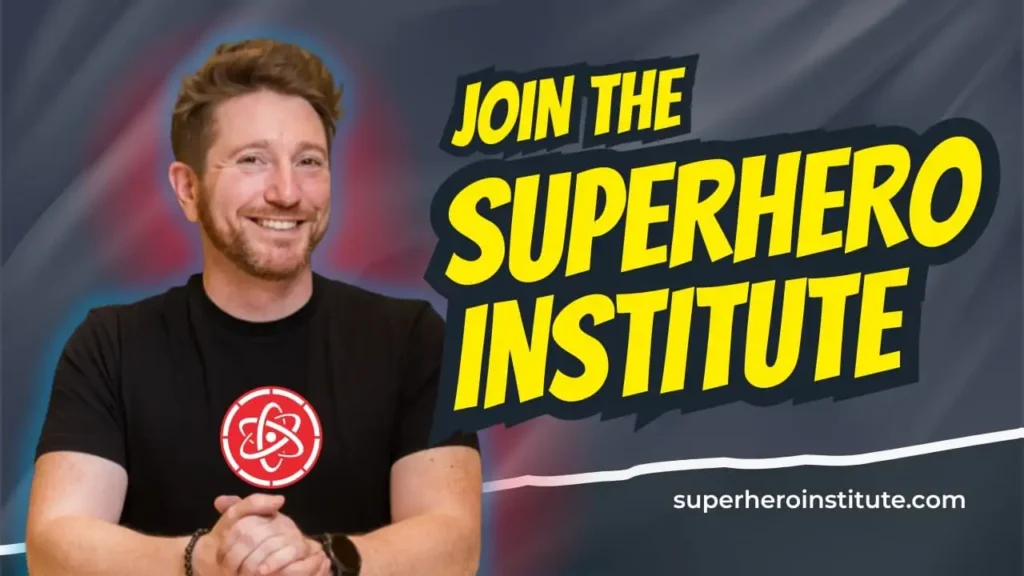Pessimism. Optimism. Hope.
How do we move forward powerfully when things around us seem to be heading in the wrong direction?
Our march toward dystopia has had a noticeable effect on my mood lately. As I look around at *waves hands wildly at everything* I’ve gone through phases of hopelessness. This not a state of mind I like to occupy for too long.
The trouble is that the world around us shape the stories that circulate in our mind and those, in turn, shape our perception of the world around us. It’s a vicious cycle.
I recently learned of three powerful questions that can interrupt the vicious cycle, and give us the ability to choose a more powerful path forward. I’d like to share them with you. But first, let’s start with three basic models for viewing the world.
✉️ Get the Infinite Impact
Join thousands getting weekly wisdom on unlocking hidden potential, building meta-abilities, and creating meaningful change through practical frameworks you can use immediately.
Option 1: Pessimism

Pessimism is the belief that, in general, more negative things will happen in the world rather than positive. A pessimist sees gloom and doom. A pessimist is convinced, mostly from traumatic or negative experiences, that things will not work out for the better.
A pessimistic view of the world is the result of a mind focused on stories of loss and pain.
Option 2: Optimism

Optimism is the belief that, in general, more positive things will happen in the world rather than negative. An optimist sees beauty and possibility. An optimist is convinced, mostly from experience or force of will, that things will work out for the better.
A optimist view of the world is the result of a mind focused on stories of beauty and joy.
Which is true?
Presuming that you have a choice in the matter, should you be optimistic or pessimistic? Which is more likely? Which will better prepare you for your journey through life?
In truth, both are incomplete, at best. The world isn’t all flowers, stickers, and unicorns. It’s also not just fascism, tornados, and pandemics. There is a mix of both in the world. So, in reality, both pessimists and optimists are victims of an overcommitment to tinting their perception of the world around them.
The spirit of the pessimist is better protected for the worst. The spirit of the optimist is better equipped to appreciate the good things when they happen. But neither sees everything clearly, all of the time.
So, what is a more useful way to approach the world?
Option 3: Hopeful

Hope is neither optimistic nor pessimistic.
Hope is the state of openness to good things happening while being sober in the reality of challenges.
A hopeful view of the world is the result of a mind focused on intention and possibility.
Three Questions that could change your life
I recently attended a conference where I got to hear the great Cy Wakeman speak on stage. Her performance was phenomenal but most importantly, she left the audience with three remarkable questions. The following is what I took away from Cy’s presentation and her questions.
When everything around you seems to be on fire, you don’t have to believe that everything is sure to fail, as the pessimist does; you don’t have to believe that everything will be ok, as the optimist does. Instead, you can take the situation for what it is, and ask yourself these three questions.
1. What do you know for sure?
This question helps you to get out of the story in your head. Most of the suffering we endure around situations is the result of a story playing in our heads; these are stories about injustice, harm, failure, wrong doing, blame, and more. Asking this question gives you the opportunity to step out of your head and into the present to look at the things we all can agree upon as being objectively true.
2. How can you help?
This question resets you into a service and solution mindset. It asks you to look at the situation you just described and search for ways in which you can materially contribute to making it better. It’s an empowering question that gives you a new destination removed from the story of suffering in your mind.
3. What would great look like?
This question asks you to imagine a best case scenario and subtly calls you to step into it. By asking yourself what it would look like for the situation to be great, or for you to be great in the situation, you neither have to accept the situation as hopeless — as the pessimist might — nor do you have to believe it will all work out for the better — as the optimist might. Instead, you just have to be in the mindset of creativity and action with a hopeful eye on moving toward great.
Better questions can change our lives

Questions beget responses, even when you ask them of yourself.
Whether you are leading others or leading yourself, the ability to continually ask great questions and then have the courage to wait for the answer, is your most direct route to changing your outcomes.
I love a good question and have pages upon pages of great questions saved in my notes. The three I’ve listed above join the seven questions from The Coaching Habit as ones I will commit to permanent memory, especially as the world continually provides evidence that we should abandon all hope, or give into apathy.
These three questions keep us locked into the present, our role as being helpful, and challenges us with that hopeful question: what would great look like?
I hope you enjoyed this post!
If you liked this post, then you will LOVE my newsletter (The Infinite Impact)
and my learning community (The Superhero Institute).

